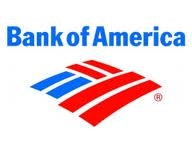Over the last few months, multiple high-profile analysts have published rosy predictions for shares of Bank of America Corp (NYSE:BAC) , the nation’s second largest lender by assets. But nobody has been more vocal than Meredith Whitney, the former Oppenheimer & Co. analyst that presciently predicted the downfall of Citigroup Inc. (NYSE:C) in 2007.
In the middle of December, she told CNBC’s Maria Bartiromo that she hadn’t “seen an opportunity like this in four or five years,” and that, with its “junk out of the trunk,” B of A will be able to quadruple its dividend in 2013.
Whitney has now doubled down on her prediction. In an interview today on Bloomberg Surveillance — see the video here — Whitney postulated that “Bank of America is the stock to own this year without a doubt.” In addition, she believes the stock “easily goes to $15 in the next six to nine months.”
Despite Whitney’s best efforts, however, shares of the bank are nevertheless down in afternoon trading. What gives?
The answer to this can likely be found in, of all places, a federal court in New York. On Tuesday night, the always entertaining Judge Jed Rakoff issued a ruling that doesn’t bode well for lenders like B of A that are busily litigating claims related to the financial crisis.
In a case involving monoline insurer Assured Guaranty Ltd. (NYSE:AGO)‘s breach-of-contract claims against Flagstar Bancorp Inc (NYSE:FBC), Judge Rakoff gave the former essentially everything it asked for from the latter. This matters because B of A is currently embroiled in a number of virtually identical cases involving other monolines like MBIA Inc. (NYSE:MBI), Ambac Assurance, and Financial Guaranty.
Although it’s still too early to predict what impact Judge Rakoff’s ruling will have in, say, B of A’s contentious case against MBIA, it’s safe to assume that it won’t be good. To read more about the Assured Guaranty case, check out Reuters’ take on it here.
Finally, in other news, Bloomberg also reported this morning that B of A has changed the compensation structure for its wealth-management unit, U.S. Trust. While bonuses had previously been tied to total client revenue, the new system more heavily incentivizes adding clients and boosting account balances.
The move comes amid a wave of similar announcements on Wall Street. Earlier this year, Morgan Stanley (NYSE:MS) said that it was capping cash bonuses for 2011 at $125,000 and that its top executives wouldn’t receive any cash as a part of their bonuses. And according to the New York Times, overall compensation on Wall Street is expected to drop this year by at least 30%.
Suffice it to say, changing the compensation structure involves a delicate dance for B of A. On the one hand, it’s ardently trying to lower expenses under its so-called Project New BAC. But on the other hand, it needs to keep its employees sufficiently content so they’ll continue producing for the nation’s second largest lender.
The article Why Meredith Whitney Couldn’t Save B of A Today originally appeared on Fool.com and is written by John Maxfield.
Fool contributor John Maxfield owns shares of Bank of America. The Motley Fool owns shares of Bank of America and Citigroup.
Copyright © 1995 – 2013 The Motley Fool, LLC. All rights reserved. The Motley Fool has a disclosure policy.






